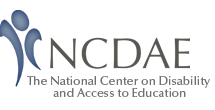List of Three Recommendations for People New to Accessibility in Library and Information Services
At the conclusion of the September 14th webcast, moderator Cyndi Rowland asked the panelists to send her a list of the three things they would recommend someone new to accessibility do in the coming year. Their responses are listed below.
Marilyn Irwin
A list of three things is tough, but I'll do my best without making it so general that the information is useless.
- Learn more about accessible information technology. Axel's website provides rich information on the topic as a starting point. Additionally, there are several opportunities for training, much online, that you could access.
- Determine the needs of your users. I realize this is tough. As Cyndi said in the Webcast, how do we know. In addition to determining the gaps for people with disabilities who do use your library, you might check data that is available to you from your institution. K-12 programs should have pretty good special education data to help school library media specialists, and the academic library could get partial figures from the campus office for students with disabilities.
- Develop an implementation plan. Based in part on user needs, determine where you are going to put your attention. If it looks like you need to make your web portal accessible, you might look at the page use counters and begin with the most heavily used pages. If you are ready to purchase new technology (telephones, online catalogs, e-books, etc.), consider accessibility as one of the features to factor into the decision making. Set reasonable timelines (e.g., 20% of the website per year will be made accessible) and stick to them. And include the review of existing policies and development of new policies that ensure accessibility as part of that implementation plan.
If all of these tips are controlled above your pay grade, make noise. You, too have a responsibility to influence change by asking questions and raising awareness. I think libraries lack accessibility due more to lack of awareness than lack of intent. If questions aren't asked, lack of awareness will continue and administrators will not see the need to make changes.
Axel Schmetzke
Thinking in the long term, I'd suggest the following:
- Networking closely with other like-minded allies on your campus and working through your institution's self-governance bodies, initiate an accessible online/electronic resources policy that would include the full spectrum of electronic resources.
- Revise your library's policies (e.g., in the areas of collection development and e-reserve) so that they promote the accessibility of electronic resources for all. (In the absence of such policies, raise the issue anyway at appropriate times.)
- Where appropriate, suggest that accessibility is addressed in the hiring process. Include knowledge about accessibility among the required or preferred job qualifications, and probe into candidates' knowledge in this area during the interview process. (This is much more doable if a suitable web/online accessibility policy at both campus and library level is in place. Job vacancies may be read by more people than article in newsletters and journals; having the accessibility requirement included may send a strong message to "library school" faculty.)

